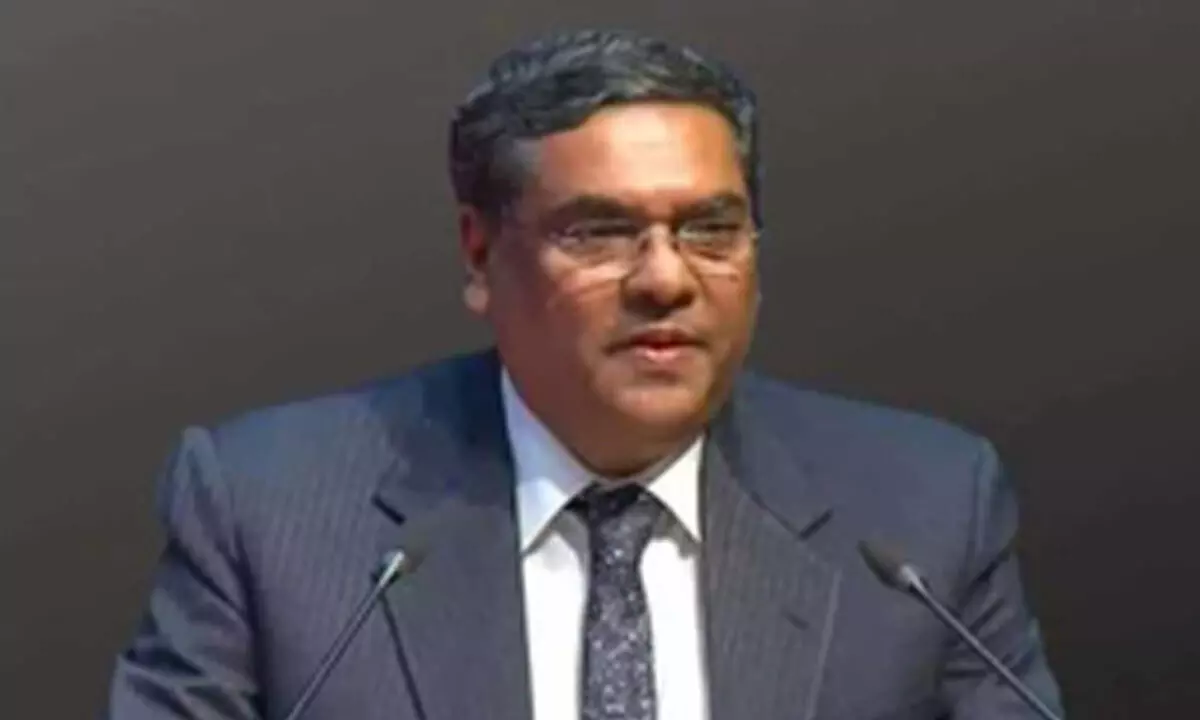When citizens challenge a law, they participate in democratic process: CJI Khanna
Share :

Chief Justice of India (CJI) Sanjiv Khanna on Tuesday said that when citizens challenge a law or an executive action, they participate in a democratic process envisaged by the Constitution.
New Delhi: Chief Justice of India (CJI) Sanjiv Khanna on Tuesday said that when citizens challenge a law or an executive action, they participate in a democratic process envisaged by the Constitution.
Addressing the Constitution Day celebrations at the Supreme Court, CJI Khanna said that “we the people of India” consider the Constitution “a way of life”.
He stressed that the constitutional scheme has designed the judiciary in a manner to ensure that its decisions are unbiased and fair.
“Imagine a world where judges campaign for votes, solicit views and decisions from the public and make promises for future judgments. The Constitution by design insulates the judiciary from the ebbs and flows of the electoral process.
“This ensures that its decisions are unbiased without any affection or ill-will, free from external pressures and guided solely by the Constitution and laws,” the CJI said.
Further, CJI Khanna said that certain areas of concern, including backlog of cases, delays, litigation cost, lack of ease of access to justice, large number of undertrial prisoners, are “engulfing the judiciary”.
He said that the judiciary, by opening itself to scrutiny, may identify systemic deficiencies and bottlenecks, and work towards eliminating them.
“It is our pledge to honour and uphold and protect the Constitution of India as its trustee and custodian. The Constitution bestows upon the constitutional courts the power of judicial review. This enables us to strike down the legislations, executive policy, and administrative and quasi-judicial decisions. We entertain Public Interest Litigations, initiate suo moto cases, appoint amicus curiae, who assists our decision making,” CJI Khanna said.
In his address, he thanked the Union government for approving the Rs 7,200 crore budget under Phase-III of the e-courts project.
On completion of 75 years of adoption of the Constitution, the Supreme Court is commemorating the Constitution Day celebrations.
Constitution Day of India, also known as Samvidhan Divas, is celebrated on November 26 every year to celebrate the adoption of the Indian Constitution.
On this day in 1949, the Constituent Assembly of India formally adopted the Constitution, which later came into effect on January 26, 1950.
The Constitution, which serves as the supreme law of the land, outlines the structure of governance, the distribution of power, and the fundamental rights of citizens.
Constitution Day was officially recognised in 2015 by the Union government, with the aim to spread awareness about the Constitution's importance, promote constitutional values among citizens and encourage them to reflect on the values of democracy, justice, equality, and liberty that it upholds.













